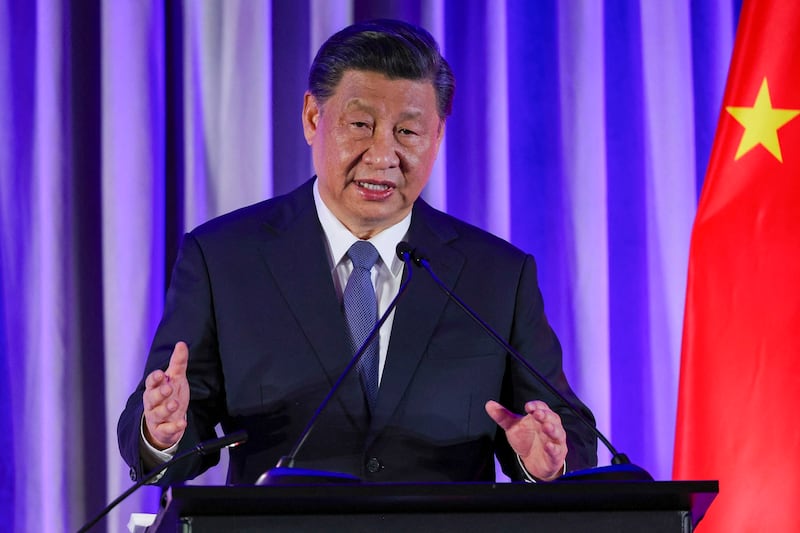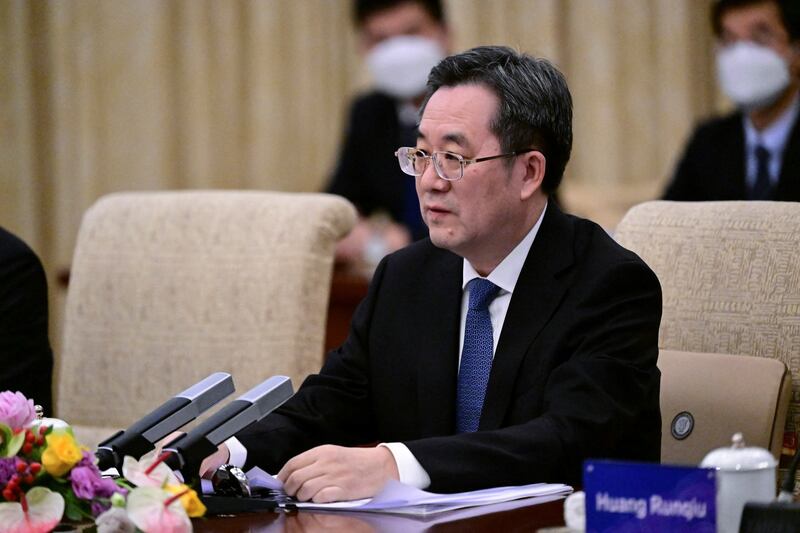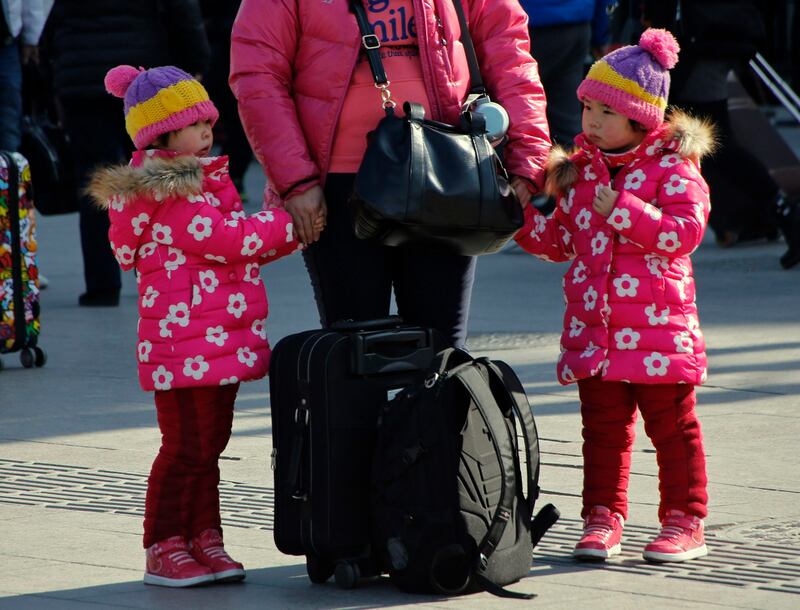Faced with plummeting marriage rates, flagging births and a rapidly aging population, Chinese President Xi Jinping wants the country's women to step up and embody "the traditional virtues" of marriage and raising children in a bid to "rejuvenate" the nation.
The number of Chinese couples tying the knot for the first time has plummeted by nearly 56% over the past nine years, the financial magazine Yicai quoted the 2023 China Statistical Yearbook as saying, with such marriages numbering less than 11 million in 2022.
Young people are increasingly avoiding marriage, having children and buying a home amid a tanking economy and rampant youth unemployment, part of an emerging social phenomenon known as the "young refuseniks" – people who reject the traditional four-fold path to adulthood: finding a mate, marriage, mortgages and raising a family.
A recent poll on the social media platform Weibo found that while most of the 44,000 respondents said 25-28 is the best age to marry, nearly 60% said they were delaying marriage due to work pressures, education or the need to buy property.
Georgetown University student Chelsea Yao, 22, who hails from the southern city of Guangzhou, said she doesn't find the prospect of marriage at all enticing after enduring years of restrictions under the zero-COVID policy.
"It may look like a peaceful family, but parents actually have a lot of conflict," she said. "In the end, marriage is about everyone living together ... when you grow up and realize what it's actually like, it seems a little unnecessary," Yao told RFA Mandarin, adding that antagonism between men and women seems to be intensifying in today’s China.
"Rather than making how you feel dependent on another person," she said, "it's better to focus on what you want to do."
Backing away
Yet Xi, whose 24-member Politburo is the first in decades not to include a single woman, is calling for the political mobilization of women like Yao to step up and compensate.
Backing away from his party's time-honored rhetoric on gender equality that was once a mainstay of its claim to legitimacy, Xi told a recent meeting that women have a "unique" role to play in the nation's return to family life.

"We need to ... guide women to play their unique role in carrying forward the traditional virtues of the Chinese nation, establish a good family tradition, and create a new trend of family civilization," Xi told a recent meeting with leaders of the party's All China Women's Federation in comments reported by state news agency Xinhua.
"Only with harmonious families, good family education, and correct family traditions can children be raised and society develop in a healthy manner," Xi said.
"We need to actively cultivate a new culture of marriage and childbearing," he said, including "guiding young people's views on marriage and childbearing" in a bid to reverse the rapidly aging population.
Chinese women should be mobilized "to contribute to China's modernization," Xi told All-China Women's Federation leaders. "The role of women in the ... great cause of national rejuvenation ... is irreplaceable."
Meanwhile, Vice Premier Ding Xuexiang's speech to the five-yearly Chinese Women's National Congress also broke with the party's usual lip-service to gender equality – by not mentioning it at all.
Widening gender gap
The lack of enthusiasm for women's rights has had a real-world impact, too.
When Xi Jinping took power in 2012, China ranked 69th in the World Economic Forum's Global Gender Gap Report, which measures policies and suggests measures to address gender inequality. By 2023, the country had fallen to 107th place.
While few women have ever risen to the highest ranks of the Communist Party, Xi's insistence on a domestic role for women is a departure even from the luke-warm, Mao-era rhetoric about gender equality, and the depiction of the party in propaganda films as liberating working class and rural women from the shackles of traditional gender roles, including forced marriage and prostitution.

In May 2021, Beijing unveiled new plans to boost flagging birth rates and reverse population aging, raising the official limit on the number of children per couple from two to three.
But Chinese women haven't been stepping up to solve the government's population problems as readily as Xi had hoped.
And the current emphasis on traditional Confucian culture appears to have exacerbated gender inequality under Xi, who has also offered little in the way of practical assistance, according to Wang Ruiqin, a former member of the Chinese People's Political Consultative Conference from the western province of Qinghai.
"The liberation of women ... should be fundamentally based on their social status," she said. "But the Chinese Communist Party's claim that women hold up half the sky is really about political expediency."
She said that rather than just calling on women to take more responsibility for marriage and childrearing, the government should put its money where its mouth is.
"The Chinese Communist Party is aware of these problems ... but doesn't actually have any fundamental measures to remedy them," Wang said. "There is no women's liberation, no employment or welfare protections, and the cost of raising children isn't shared by the government."
Obstacles
Chinese women face major barriers to finding work in the graduate labor market and fear getting pregnant if they do manage to get a job, out of concern their employer will fire them, a common practice despite protection on paper offered by China's labor laws.
And the authorities have cracked down hard on women's rights groups and #MeToo activists, detaining five feminists as they planned a campaign against sexual harassment on public transport ahead of International Women's Day 2015 and recently jailing feminist journalist and #MeToo researcher Sophia Huang for "incitement to subvert state power."

Despite being stymied by strict censorship and the fear of political persecution at home, Chinese women are finding allies in the international feminist movement, as well as standing with Uyghur women activists overseas.
Xia Ming, political science professor at New York's City University, said Xi's administration has effectively downgraded the status of women, yet resistance continues.
"The social status of Chinese women is in sharp decline, and this is coming from the government, judging by the level of attention it is getting from the highest level of leadership," Xia said.
"They have come up with a total solution for saving their regime's grip on power – to remove women from the labor market entirely," he said.
He said the move comes amid a growing feminist awareness among Chinese women, who are unlikely to go along with the plan quietly.
"China has accumulated a large number of highly capable and talented women, and they are going to be in strong conflict with the system [over this policy]," he said.
Translated by Luisetta Mudie. Edited by Malcolm Foster.
